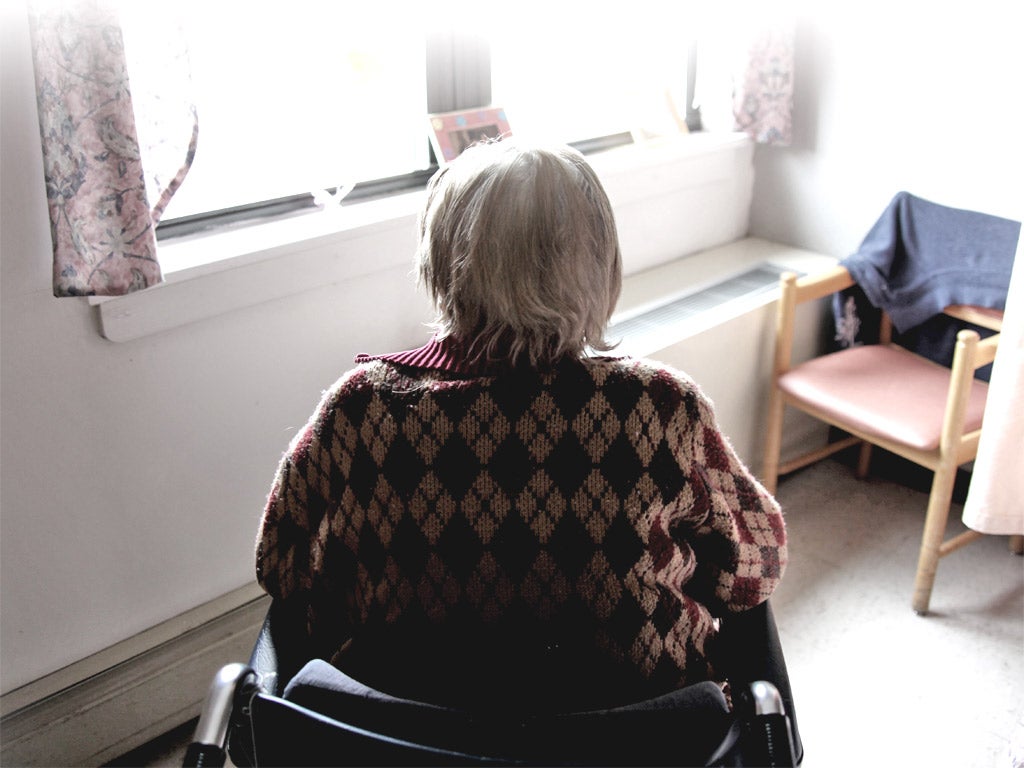Britain's biggest care home owners have debts of more than £4.5bn
Just a year after the Government vowed to prevent another Southern Cross, we reveal the complex corporate finances that leave our elderly facing an uncertain future

Britain's biggest private care home owners have combined debts of nearly £5bn, it can be disclosed today, raising fresh concerns about the financial health of companies looking after thousands of elderly and disabled people.
An investigation by The Independent and Corporate Watch has established that the debts of three of the firms, which own nearly 800 homes, have been rated as risky by leading credit agencies over concerns about how the companies could pay off the debts in the tough economic climate.
Meanwhile, receivers have been called in to a subsidiary of the ninth largest care home company, Bondcare, which has 74 homes, following concerns raised by its lending bank.
The Government has failed to introduce any regulation to force care home providers to be more transparent about their finances – despite promises made in the wake of last year's Southern Cross collapse which affected 31,000 elderly residents and their families.
Most leading care home owners have highly complex structures and loan arrangements, making it difficult for local authorities and families to pierce the corporate veil and properly assess underlying risks. Scrutiny of five of the biggest firms is made more difficult because they are owned by parent companies based in secretive offshore tax havens, The Independent has found.
Over the past 20 years there has been a significant expansion of large private companies, keen to cash in on the care business, while council-run homes and smaller firms have declined. Local authorities dealing with a 28 per cent cut to their budgets from central government and an ageing population are increasingly looking to the private sector to build new homes and reduce running costs. Councils, the biggest purchasers of care beds, have spent millions of taxpayers' money hiring management consultants to recommend companies without necessarily assessing future risks. Many feel that the Southern Cross debacle demonstrated that financial regulation is long overdue.
Last night, Labour's Andy Burnham, shadow Health Secretary, said: "It is absolutely essential that individuals have access to clear information about the strengths and liabilities of organisations looking after their mums and dads. "The Government said it will legislate soon on social care and it is essential that it learns the lessons of Southern Cross, puts some stability into this market as the current high-rolling, high-risk economics we see is not compatible with the care of elderly people."
Michelle Mitchell from Age UK said: "This is a major concern and we are calling on the Government to ensure that Monitor, the NHS Financial Regulator, is given a duty to assess the financial viability of care providers and, where necessary, the powers to ensure compliance."
A Department of Health spokesman said it had been working closely with the care home industry and a public consultation about financial regulation would begin soon.
Subscribe to Independent Premium to bookmark this article
Want to bookmark your favourite articles and stories to read or reference later? Start your Independent Premium subscription today.

Join our commenting forum
Join thought-provoking conversations, follow other Independent readers and see their replies